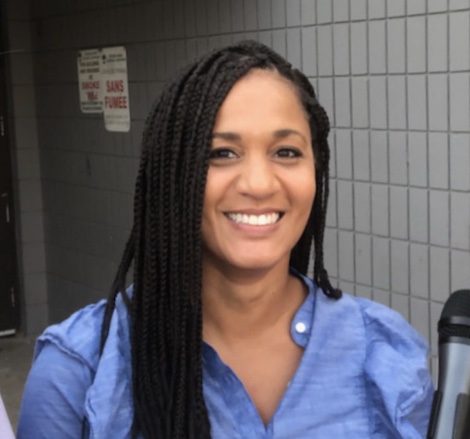More than half of Canadians believe our schools could do a better job at teaching Black history.

That’s according to an Ipsos poll conducted exclusively for Global News, which surveyed 1,000 Canadians between Feb. 2 and 3.
The polling also found that 54 per cent said they believe racism is built into the Canadian economy, government and educational system.
A Winnipeg principal says those results aren’t all that surprising, but that her school — along with others — is working to effect change.
“For me, it’s not surprising at all,” said Michelle Jean-Paul, principal of the new Ecole Templeton in the Seven Oaks School Division.
“When we think about how our curriculum has been written and how our school system has been created, it’s been on dominant cultural perspectives — which is not the Black perspective.
“The fact that it’s absent, largely, from what’s happening in Canadian schools is just par for the course. The important thing is that we’re now paying attention to that fact.”
Jean-Paul told 680 CJOB that she and her siblings experienced being the only Black students in their classes while going to school in the 1980s and ’90s, and didn’t have any Black teachers or other school staff offering their perspectives in either the formal or informal curriculum.
“I think part of it is not having people understand some of the things that you’re living,” she said.
“I think of the first time a racial slur was used against me in school … I remember feeling like I couldn’t discuss it with my peers, because they wouldn’t get it — because that word wouldn’t have the same power when they heard it as when I heard it.”
The educational focus on Black History Month, Jean-Paul said, is important, but the ultimate goal is to normalize the stories of Black people, as well as those from other minority groups, so they’re just a natural part of the school curriculum.
“I think oftentimes we fear saying the wrong thing, and so we don’t say anything at all.
“Until we can no longer count the number of days or the number of ways in a school year that we’re highlighting the non-dominant cultures and ideologies, then we’re not doing enough.”
“We’re always striving to do more.”

The survey’s results, interestingly, indicated that older Canadians were more likely to disagree that Black history was being adequately taught in schools.
Ipsos manager Shanze Khan told Global News this showed that adults are “reflecting on what they were taught” and realizing their education was skewed.
“Younger Canadians who potentially have been more exposed to the diverse histories of the country do not feel that way,” said Khan.
“There must be a correlation between education and whether you believe there is systemic racism or not.”









Comments